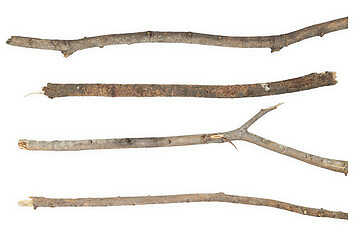2024-2025 Hypatia Vourloumis' seminar: The Weapon of Theory
The seminar is conceived and offered by Hypatia Vourloumis
The seminar from Confluence to Confluence
Seminar participants second year: Öykü Özgencil, Sara Alberani, Tuba Kılıç, Qiaoling Cai
Seminar participants first year: Despina Sanida Crezia, Ratri Notosudirdjo, Anne van Ophem, Jamie Donald, Ayse Idil Idil, Ginevra Collini, Julian Rieken, Ivor Glavaš.
The Weapon of Theory
INTRODUCTION
The Cape Verdean and Bissau-Guinean poet, writer and revolutionary, Amílcar Lopes da Costa Cabral, contributes to critical theory in vital ways. Approaching theory as a strategic part of anticolonial struggle, Cabral named his approach “the weapon of theory”—a radical form of composition and construction, a bricolage that draws from multiple sources. Eritrean philosopher Tsenay Serequeberhan argues for the importance of recognizing and studying Cabral’s ideas because they led to actual cultural, historical, social and political transformation, decolonization, and national liberation. Our seminar will begin with and build upon Cabral’s writings and reflections as they will provide us with a series of unique contributions to radical politics and critical theory through the intersections of racism, sexism, capitalism, and colonialism, historically and in the present.
We will rethink critical theory alongside Cabral, and furthermore, we will closely engage with the inextricable relationship between the weapon of theory and the weapon of culture as revolutionary theory and praxis. According to Reiland Rabaka, Cabral, is not merely a “military strategist,” or “philosopher,” or “revolutionary,” but “an extremely innovative and complex organic intellectual-activist whose intellectual history-making dialectical discourse appropriated the wide-range of epistemic resources—whether from the social sciences or the humanities, or the life-worlds and life-struggles of the wretched of the earth—at his disposal, and these, however unorthodox, epistemic resources became integral parts of his ever-evolving weapon of theory and intellectual arsenal without any regard whatsoever for the arbitrary and artificial academic and disciplinary borders and boundaries of Europe’s insidious ivory towers and the apartheid-like absurdities of the American academy” (Concepts of Cabralism, 14). Continuing the work we began last year where we took seriously the need for collectively thinking through, discussing, practicing, and experimenting with anticolonial and antiimperialist pedagogies, our seminar will draw from a heterodoxy of resources where all participants, during each confluence, will be encouraged to present and critically analyze their own theoretical, historical, literary and cultural resources, and developing art practices. Honoring the question and call of “how to do things with theory” we will explore how the actions we take are a manifestation of theory, and theory inextricable from action.
Readings:
brown, adrienne maree, Emergent Strategy: Shaping Change, Changing Worlds. AK Press, 2017.
Butler, Octavia, Parable of the Sower. Grand Central Publishing, 1993.
Cabral, Amílcar, Resistance and Decolonization. Lanham, MD: Rowman & Littlefield Publishers, 2016.
Cabral, Amílcar, Unity and Struggle: Speeches and Writings. New York: Monthly Review Press, 1997
Cabral, Amílcar, Return to the Source: Selected Speeches of Amílcar Cabral. New York: Monthly Review Press, 1973.
Cesaire, Aimé, “The Miraculous Weapons” in Aimé Césaire, The Collected Poetry. Berkeley: University of California Press, 1983.
Césaire, Suzanne, The Great Camouflage: Writings of Dissent (1941-45). Middletown CT: Wesleyan University Press, 2009.
Crimp, Douglas, “Mourning and Militancy.” October 51 (winter 1989): 3-18.
Fasheh, Munir, “Community Education: To Reclaim and Transform What Has Been Made Invisible.” Harvard Educational Review (1990) 60 (1): 19–36.
Fasheh, Munir, “The Trouble with Knowledge.” Shikshantar Andolan website: https://shikshantar.org/articles/trouble-knowledge
Goldman, Danielle, I Want to Be Ready: Improvised Dance as a Practice of Freedom. Ann Arbor, MI: University of Michigan Press, 2010.
Hammad, Isabella. Recognizing the Stranger: On Palestine and Narrative. (Grove Atlantic, 2024).
Harris Laura, Experiments in Exile: C. L. R. James, Hélio Oiticica, and the Aesthetic Sociality of Blackness. NY: Fordham University Press, 2018.
Katherine McKittrick, Dear Science and Other Stories. Durham, NC: Duke University Press, 2020.
Reiland Rabaka, Concepts of Cabralism: Amílcar Cabral and Africana Critical Theory. Lanham,
MD: Rowman & Littlefield Publishers, 2014.
Serequeberhan, Tsenay “Theory and Actuality of Existence: Fanon and Cabral.” In Kwasi Wiredu (Ed.), A Companion to African Philosophy (225–230). Malden, MA: Blackwell, 2004.
Serequeberhan, Tsenay “Amílcar Cabral and the Practice of Theory.” In John Fobanjong and Thomas Ranuga (Eds.), The Life, Thought and Legacy of Cape Verde’s Freedom Fighter Amílcar Cabral (1924–1973): Essays on His Liberation Philosophy (17–28). Lewiston, NY: Mellen Press, 2006.
Shoal Collective (Eds.), Interviews with Radical Palestinian Women. Active Distribution, 2021.


